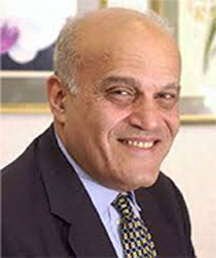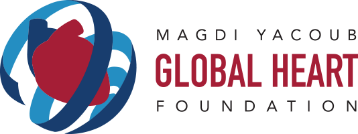
Prof. Sir Magdi Yacoub was born in Egypt and is currently a Professor of Cardiothoracic Surgery at the National Heart and Lung Institute, Imperial College London.
He is the Founder and Director of Research at the Harefield Heart Science Centre (Magdi Yacoub Institute), overseeing over 60 scientists and students in the areas of tissue engineering, myocardial regeneration, stem cell biology, end stage heart failure and transplant immunology. He is also founder and director of the Magdi Yacoub Research Network, which created the Qatar Cardiovascular Research Centre in collaboration with the Qatar Foundation and Hamad Medical Corporation. Prof. Yacoub established the largest heart and lung transplantation program in the world, where more than 2,500 transplant operations have been performed, and he has also developed novel operations for a number of complex congenital heart anomalies.
Research led by Prof. Yacoub includes tissue engineering heart valves, myocardial regeneration, novel left ventricular assist devices and wireless sensors.
Prof. Yacoub graduated from Cairo University Medical School, later training in London and holding an Assistant Professorship at the University of Chicago. He is a former BHF Professor of Cardiothoracic Surgery and Consultant Cardiothoracic Surgeon at Harefield Hospital and Royal Brompton Hospital.
Prof. Yacoub was knighted for his services to medicine and surgery in 1991, awarded Fellowship of the Academy of Medical Sciences in 1998 and Fellowship of The Royal Society in 1999. A lifetime achievement award in recognition of his contribution to medicine was presented to Prof. Yacoub by the Secretary of State for Health in the same year.
Prof. Yacoub has an active interest in global healthcare delivery with particular focus developing programs in Egypt, the Gulf Region, Mozambique, Ethiopia and Jamaica. He is Founder and President of Chain of Hope, the Magdi Yacoub Heart Foundation and Aswan Heart Centre, a charitable tertiary cardiac in Upper Egypt that serves underprivileged Egyptian pediatric and adult patients, as well as patients in need from around the world.




